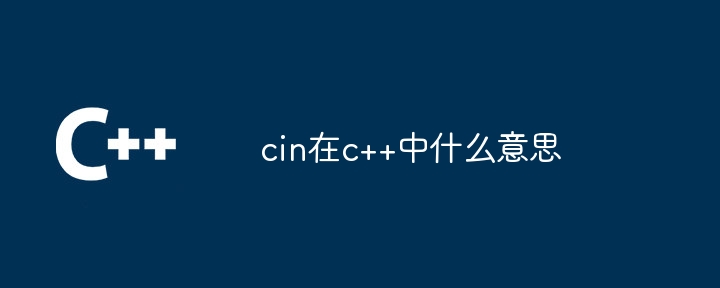
cin in C is a predefined input stream used to get data from standard input: the cin object is used to read input. Use the ">>" operator to store input data into a variable. cin is type safe, ensuring that the input conforms to the variable type. Advantages: easy to use, type safe, often used in interactive programs.

cin meaning in C
In the C programming language, cin is A predefined input stream for reading data from a standard input device (usually the keyboard). It provides an easy way to store user-entered data in variables.
Usage of cin
cin format is:
cin >> variable;
where:
cin is the input stream object. variable is the variable to store the input data. Example
The following code snippet shows how to use cin to read an integer from the user and store it in the variable number Medium:
int number; cin >> number;
Now, the variable number contains the integer entered by the user from the keyboard.
Type safety
cin is type safe, which means it will validate the input data based on the type of the variable. For example, if number is an integer variable, cin will ensure that the entered value is an integer. If the input is not an integer, cin will throw an exception or set the variable to its default value.
Advantages
Using cin has the following advantages:
The above is the detailed content of What does cin mean in c++. For more information, please follow other related articles on the PHP Chinese website!
 What are the differences between c++ and c language
What are the differences between c++ and c language
 Recommended learning order for c++ and python
Recommended learning order for c++ and python
 Cost-effectiveness analysis of learning python and c++
Cost-effectiveness analysis of learning python and c++
 Is c language the same as c++?
Is c language the same as c++?
 Which is better to learn first, c language or c++?
Which is better to learn first, c language or c++?
 The difference and connection between c language and c++
The difference and connection between c language and c++
 C++ software Chinese change tutorial
C++ software Chinese change tutorial
 Cost-effectiveness analysis of learning python, java and c++
Cost-effectiveness analysis of learning python, java and c++




